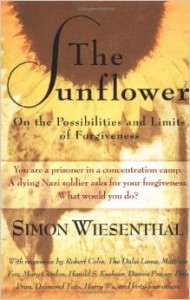The Jewish holocaust survivor Simon Wiesenthal has become famous for his success in bringing Nazi war criminals to justice. He saw his life-long work as his ‘duty’ for those who were not alive anymore. When he was in the concentration camp, a dying Nazi soldier called him in and asked him for forgiveness for what he had done to his people. Wiesenthal thought about what to do, and ended up leaving the room in silence. The soldier was left unforgiven.
But this was not the end of the question about forgiveness for him. He started to ask others what they would have done, and his experience sparked a discussion across nations, disciplines and religions about the question of forgiveness and “What would you have done,” known as the Sunflower Project’’ Some of the questions addressed in the debate are:
– Is forgiveness on behalf of others (who have been killed) possible?- Is it the duty of the survivors to make sure the perpetrators are punished and not forgiven?- Is forgiving the same as forgetting?
– Is forgiving breeding evil?
– Can the Nazi’s crimes against humanity ever be forgiven?
– Should Hitler be forgiven if he had had remorse?
– Should future generations feel guilty?
It is interesting how the perspectives vary depending on the religious background – Jewish thinkers tend to feel that Wiesenthal did the right thing by not forgiving, whereas Christian and Buddhist thinkers tend to advocate forgiveness.
What would you have done?

